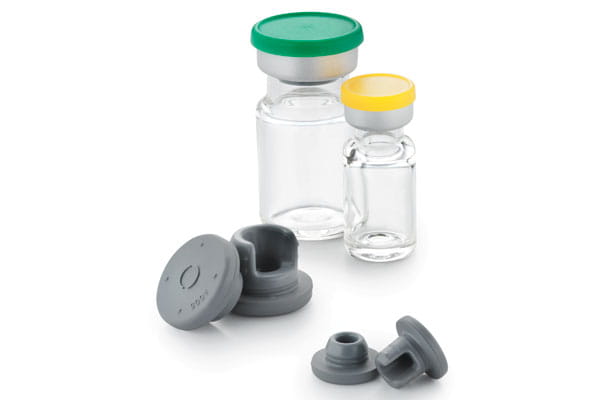Evaluation of Container Systems with Residual Seal Force (RSF)
Parenteral drug products must be stored in a container system that provides good container closure integrity (CCI) over shelf life for the purpose of preventing environmental contamination. This system typically comprises a glass vial, elastomer stopper, and an aluminum seal. USP Chapter <1207> Packaging Integrity Evaluation – Sterile Products discusses in detail methods to measure CCI to determine if the system can meet the maximum allowable leak limit (MALL) for its specific drug product (i.e., the smallest gap, or leak rate, that places quality at risk). Critical to achieving good CCI is proper capping of the vial with the stopper and seal, making sure that the compression level of the stopper is appropriate.
![]()

A way to determine the quality of the capping process is by measuring the residual seal force (RSF) of the stopper. RSF is the vertical force generated by a compressed elastomeric rubber stopper on the vial land sealing surface after crimping with the aluminum seal. The RSF tester applies a constant rate of compression onto the top of a sealed vial and records the resultant stress-strain profile, from which the value of RSF is derived. It has been shown that CCI performance correlates with RSF values. Note that RSF methodology for seal quality testing is likewise discussed in Chapter <1207>. West scientists have examined the fundamentals of RSF, from a theoretical basis and as a function of time, for example:
Ensuring good CCI is essential for a container system. RSF measurement is an excellent tool that can quickly verify that the component selection and capping conditions will meet requirements. For more on how West can provide support in these areas, contact an Account Manager or Technical Customer Support (TCS) representative; or visit the West Knowledge Center.



